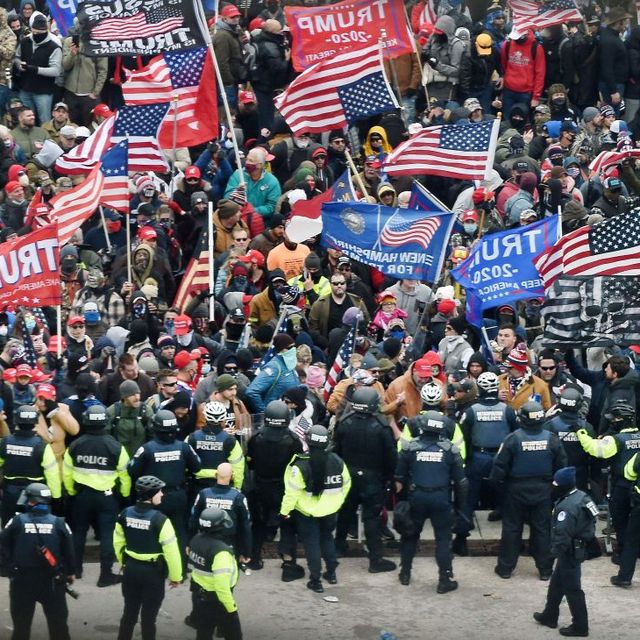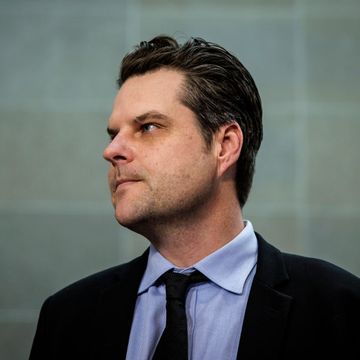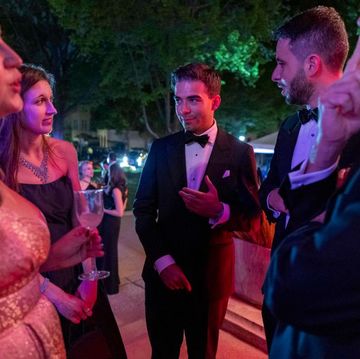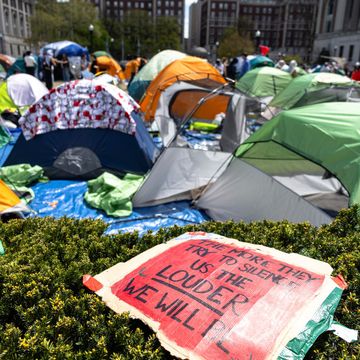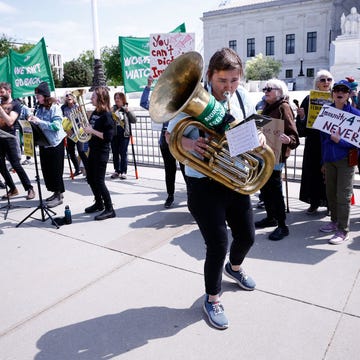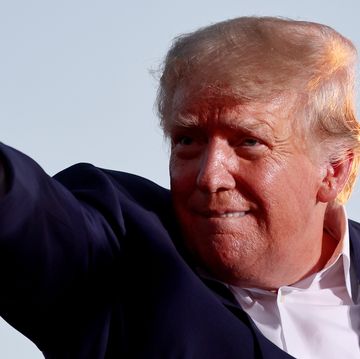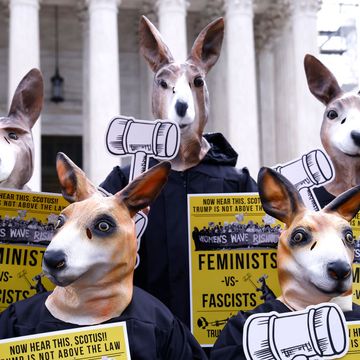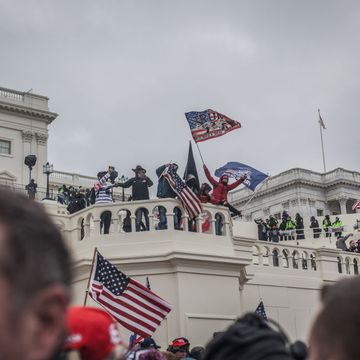The Supreme Court had its chance on Tuesday to give El Caudillo del Mar-A-Lago and his duck-boot battalions a real break. The case was Fischer v. U.S. Joseph Fischer was a cop from Pennsylvania who allegedly broke into the Capitol on January 6 after allegedly kicking the hell out of some of his brothers in blue at the barricade line. At issue wasn't Fischer's enthusiastic exercise of his First Amendment rights—guaranteed in the case of Hagler v. Hearns—but one of the other charges that was ladled onto his rap sheet due to his actions that day. The prosecutors had used a provision of the Sarbanes-Oxley Act, which was passed in the wake of the Enron brigandage, to charge Fischer and more than 350 of his fellow arrestees with obstructing or impeding an official proceeding—to wit, the certification of the 2020 presidential election. It so happens that the former president* is charged with two similar offenses as part of his whopping January 6 case.
Fischer's theory of the case rests on the argument that the federal prosecutors stretched the Sarbanes-Oxley provisions far beyond their legislative intent in charging the rioters. If the court rules for Fischer, chaos will erupt. Dozens of cases overturned or not brought to trial at all. And, as a delightful bonus, those two charges against the former president* tossed, which will certainly prompt an avalanche of I'm a Political Prisoner posts on Truth Social and a blizzard of fundraising emails to his universe of Great Patriot suckers. He also will try to sell the idea that the dismissal of two charges means his whole bill of indictment is wiped clean.
However, as the arguments lengthened on Tuesday, the court seemed so divided that at times it became utterly baffled. From The Washington Post:
Several conservatives expressed concern about giving prosecutors broad power that they suggested would allow the government to target peaceful protesters or hecklers who disrupt a court proceeding. Other justices seemed to back the government, while some were interested in finding a way to limit the government’s discretion to apply the statute in a way that might still allow the Jan. 6 cases to proceed.
There was a lengthy semantic disputation to kick off the arguments. From The Guardian:
When Congress passed the obstruction law, it was done in a two-part provision. The first part makes it a crime to corruptly alter, destroy or conceal evidence to frustrate official proceedings. The second part, at issue in Fischer’s case, makes it a crime to “otherwise” obstruct official proceedings. The argument from Prelogar contended that “otherwise” was designed as a catchall for any obstructive conduct that Congress might not have imagined when the law was being drafted. Prelogar’s point was that the theme of the law was outlawing all obstruction....
Alito and Gorsuch appeared deeply skeptical of the justice department’s position. They suggested repeatedly that Prelogar’s reading of the law was overly expansive, peppering her with hypotheticals. Would delaying an official proceeding count as obstruction? How significant did the delay have to be to count as obstruction? Gorsuch asked. Alito added that the statute mentioned obstruction but also mentioned “impeding” proceedings, which, he said, was less serious than obstruction.
Prelogar, on the defensive, was eventually pressed into replying that peaceful protests would be a technical violation of the law, even if the justice department was unlikely to prosecute minor disturbances, drawing a contrast to the events of January 6. But that invited Alito to ask how Prelogar would define minor disturbances. Would it be a minor disturbance if people heckled a court hearing, delaying the hearing and causing lawyers to lose their train of thought? Prelogar’s definition would encompass everything and anything in between, Alito suggested.
In an amicus brief filed with the court in March, conservative judge J. Michael Luttig and several other old-school Republican conservatives, including John Danforth, Justice Thomas's former patron in the Senate, anticipated this dispute and advocated the heretical notion that words should mean what they mean.
This short brief focuses on two points. First, not only does “otherwise” mean “differently,” but an antonym of “otherwise” is “similarly.” 18 U.S.C. subsection 1512(c)(2) thus cannot be interpreted to be limited to only conduct that corruptly obstructs, influences, or impedes an official proceeding in a similar way to the document impairment and spoliation set forth in subsection 1512(c)(1).
Moreover, the amici argued, there should be some consciousness of the general threat to the country in all matters connected to the events of January 6.
The second is whether, as a matter of prosecutorial discretion, the Executive Branch may distinguish between those who invaded the Capitol to prevent the peaceful transfer of executive power required by our Constitution and others who may have corruptly obstructed congressional proceedings with lesser consequences. Keeping the Republic given to us by our Constitution supports strong deterrence of criminal efforts to prevent the peaceful transfer of executive power.
Listening to the arguments, and to the questions from some of the justices, there was a certain sadness in hearing the insurrection referred to as a kind of faded abstraction and lined up from the bench with talk-show hypotheticals.

Charles P Pierce is the author of four books, most recently Idiot America, and has been a working journalist since 1976. He lives near Boston and has three children.
